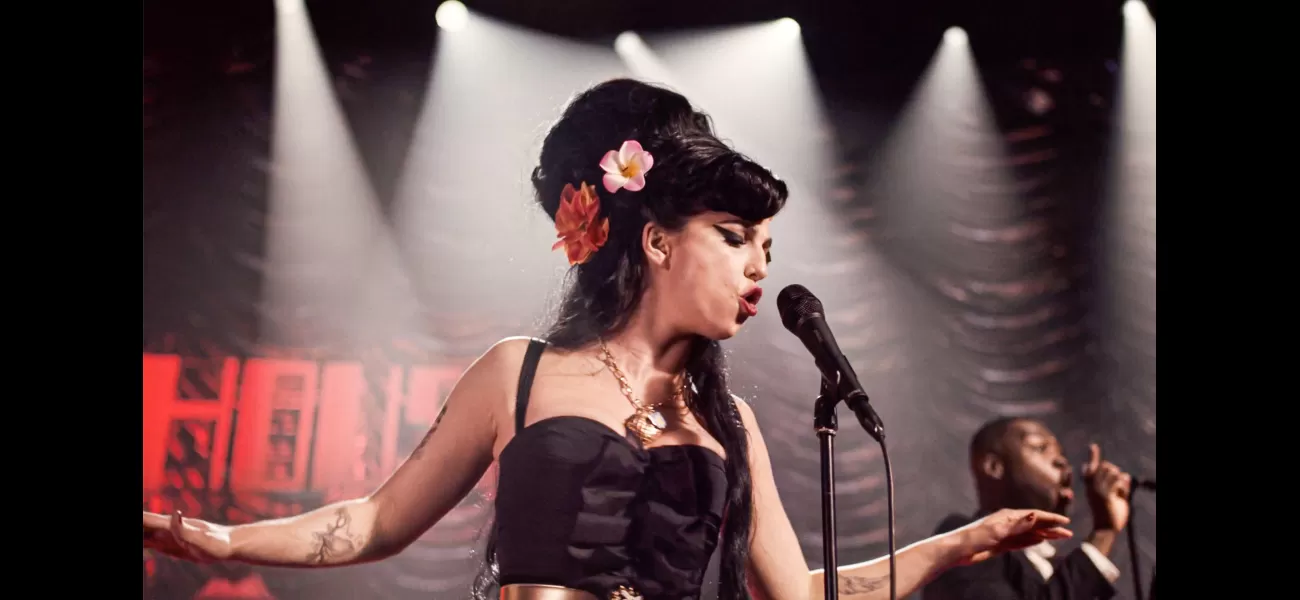The documentary about Amy Winehouse was a fitting tribute and we don't need her album "Back to Black."
The movie is not receiving positive feedback from critics.
April 12th 2024.

When I first heard about the release of the biopic "Amy" in 2015, I couldn't help but feel a sense of unease. I was worried that the film would once again overshadow Amy Winehouse's incredible legacy and reduce her life to yet another "woman in crisis" narrative. I was afraid of the added melodrama and sensationalism that seem to plague any story about a troubled celebrity.
But to my relief, "Amy" did not fall into those tropes. It walked a careful line, avoiding the extremes of either wallowing in Amy's fate or sensationalizing her struggles. The film was haunting, but not in a way that felt exploitative or disrespectful. It showed moments from Amy's life that were harrowing without resorting to theatrics.
So when I heard about the release of "Back to Black" in 2024, I couldn't help but feel apprehensive. This biographical drama chronicles Amy's adolescence and rise to fame, and I worry that it will once again reopen old wounds and tell a version of Amy's story that she never consented to.
Unlike other artists who have been able to reclaim their narrative through memoirs, Amy will never have that opportunity. And yet, "Back to Black" insists on telling her story without her input. The clips I've seen and the interviews I've read about the film do not seem to take the same level of care and sensitivity that Amy did. In fact, they paint a very different and concerning picture.
Directed by Sam Taylor-Johnson and starring Marisa Abela as Amy, the film seems to be following in the footsteps of other sanitized biopics like "Bohemian Rhapsody" and "I Wanna Dance with Somebody." But unlike those films, "Back to Black" has received early reviews that are less than favorable. One critic even described it as an "excellent alibi" for those who "preyed upon her vulnerability."
During her short life, Amy was known for her honesty and aversion to artifice. She spoke her mind and her lyrics were raw and emotionally charged. So it's disheartening to see her legacy reduced to mere mimicry in the film. Amy's story deserves to be told with dignity and restraint, not exaggerated accents and cheesy dialogue.
In my opinion, the only way to truly understand Amy is through her own words, which is why I have no intention of seeing "Back to Black." Instead, I prefer to look to her music and the legacy she left behind. I was fortunate enough to attend the exhibition "Amy: Beyond the Stage" at the Design Museum in London, which beautifully curated her life through personal objects and video clips of her candid interviews. It was a celebration of her brilliance, rather than a rumination on her struggles.
If you want to understand an icon, don't watch a biopic. Look to their lyrics and the impact they had on the world. As Amy herself once said, "If I could give fame back, just to walk down that street with no hassle, I would." Let's honor her wishes and let her rest, rather than continuously dredging up her past for entertainment.
But to my relief, "Amy" did not fall into those tropes. It walked a careful line, avoiding the extremes of either wallowing in Amy's fate or sensationalizing her struggles. The film was haunting, but not in a way that felt exploitative or disrespectful. It showed moments from Amy's life that were harrowing without resorting to theatrics.
So when I heard about the release of "Back to Black" in 2024, I couldn't help but feel apprehensive. This biographical drama chronicles Amy's adolescence and rise to fame, and I worry that it will once again reopen old wounds and tell a version of Amy's story that she never consented to.
Unlike other artists who have been able to reclaim their narrative through memoirs, Amy will never have that opportunity. And yet, "Back to Black" insists on telling her story without her input. The clips I've seen and the interviews I've read about the film do not seem to take the same level of care and sensitivity that Amy did. In fact, they paint a very different and concerning picture.
Directed by Sam Taylor-Johnson and starring Marisa Abela as Amy, the film seems to be following in the footsteps of other sanitized biopics like "Bohemian Rhapsody" and "I Wanna Dance with Somebody." But unlike those films, "Back to Black" has received early reviews that are less than favorable. One critic even described it as an "excellent alibi" for those who "preyed upon her vulnerability."
During her short life, Amy was known for her honesty and aversion to artifice. She spoke her mind and her lyrics were raw and emotionally charged. So it's disheartening to see her legacy reduced to mere mimicry in the film. Amy's story deserves to be told with dignity and restraint, not exaggerated accents and cheesy dialogue.
In my opinion, the only way to truly understand Amy is through her own words, which is why I have no intention of seeing "Back to Black." Instead, I prefer to look to her music and the legacy she left behind. I was fortunate enough to attend the exhibition "Amy: Beyond the Stage" at the Design Museum in London, which beautifully curated her life through personal objects and video clips of her candid interviews. It was a celebration of her brilliance, rather than a rumination on her struggles.
If you want to understand an icon, don't watch a biopic. Look to their lyrics and the impact they had on the world. As Amy herself once said, "If I could give fame back, just to walk down that street with no hassle, I would." Let's honor her wishes and let her rest, rather than continuously dredging up her past for entertainment.
[This article has been trending online recently and has been generated with AI. Your feed is customized.]
[Generative AI is experimental.]
0
0
Submit Comment





